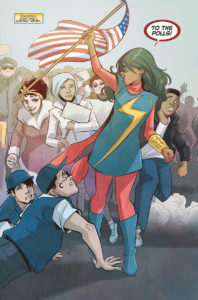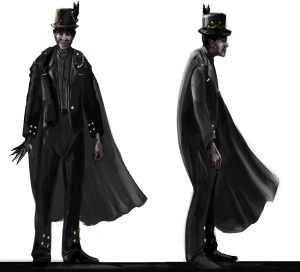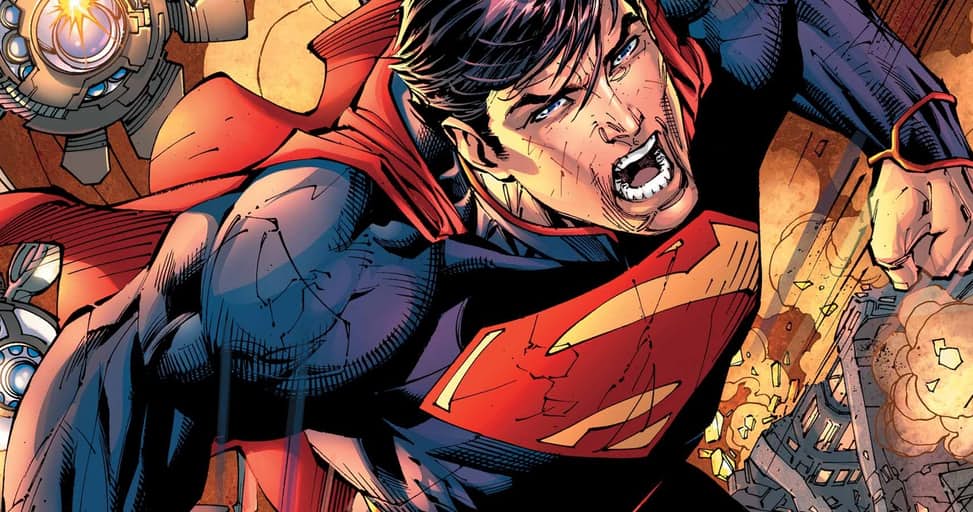 Marvel Comics’ Ms. Marvel #13 not only displays a determined, patriotic Muslim-American superheroine on its cover, but it also dedicates much of its page content to the titular hero pushing a “get out the vote effort.” In a U.S. Presidential election that has featured intolerance widely and Islamophobia specifically, having the Jersey-born Pakistani character campaigning for democratic action feels heartening, coming, even as a does, from a mega-corporation-backed publisher like Marvel.
Marvel Comics’ Ms. Marvel #13 not only displays a determined, patriotic Muslim-American superheroine on its cover, but it also dedicates much of its page content to the titular hero pushing a “get out the vote effort.” In a U.S. Presidential election that has featured intolerance widely and Islamophobia specifically, having the Jersey-born Pakistani character campaigning for democratic action feels heartening, coming, even as a does, from a mega-corporation-backed publisher like Marvel.
The comic hits retail stores on November 30th, three weeks after the election.
Ethan Sacks, writing for the New York Daily News, sounds befuddled about this timing:
The timing of “Ms. Marvel” # 13, however, is a little puzzling. By the time the issue hits stores on Nov. 30, the presidential race will (hopefully) have been long decided.
First, Sacks is either naive about the comic book industry or, worse, willfully ignorant: there are any number of reasons to have this issue come out after Tuesday, November 8th. Not the least of these reasons is the very point he embeds parenthetically in his comment, namely that we can only hope Nov. 8th concludes the ugly, vicious election season. Yet, many suspect/fear a even nastier fight than the Bush/Gore debacle of 2000 — and, in that scenario, the release of Ms. Marvel #13 will feel particularly wise, prescient, and rightfully scolding.
Continue reading Ms. Marvel and the Good Business of Democracy




 Let us return to the quoted line about Superman’s supposed, but “oft overlooked” origin story and Jewish heritage. It does not take much effort to poke a hole in the claim that this is an overlooked topic. In the past ten years alone, numerous books have been published that have this issue as their central focus: in 2006, Rabbi Simcha Weinstein published
Let us return to the quoted line about Superman’s supposed, but “oft overlooked” origin story and Jewish heritage. It does not take much effort to poke a hole in the claim that this is an overlooked topic. In the past ten years alone, numerous books have been published that have this issue as their central focus: in 2006, Rabbi Simcha Weinstein published ![Activists hold a picture of Jordanian writer Nahed Hattar on Wednesday at his funeral [Muhammad Hamed/Reuters]](http://www.aljazeera.com/mritems/imagecache/mbdxxlarge/mritems/Images/2016/9/28/1e04bc33997f4c7db5dc5093bb926379_18.jpg)
